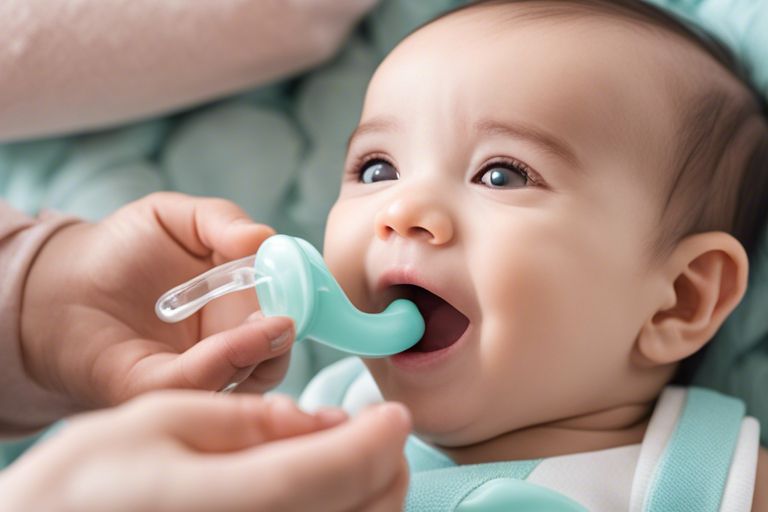tips, tricks and guides for parenthood
You know pacifiers are a popular choice for soothing babies, but have you ever wondered what feeding experts have to say about them? Let's explore into the world of pacifiers and feeding to uncover the important dos and don'ts. From the benefits of pacifiers to potential risks associated with prolonged use, we'll explore what the experts recommend when it comes to feeding and using pacifiers. Stay tuned for expert advice on how to navigate this common parenting dilemma!

On the topic of pacifiers in infant feeding, experts have varied opinions. Some argue that the use of pacifiers can help soothe babies and assist in managing their sucking reflex. However, others caution that prolonged use of pacifiers may interfere with the establishment of breastfeeding and could lead to dental issues in the future.
| Pros | Cons |
| Can help soothe and comfort babies | May interfere with breastfeeding |
| May assist in managing sucking reflex | Prolonged use could lead to dental problems |
| Some experts suggest a potential link to increased risk of ear infections |
Pacifiers can be a helpful tool in calming and soothing infants, especially during stressful times. However, it is important to consider both the advantages and disadvantages before introducing them to your baby's routine. Consult with healthcare professionals for personalised advice on pacifier use.
You can read more about pacifier use in babies in the article Don't Panic, Use a Pacifier.
To address the concern of whether pacifiers can impact breastfeeding, research shows that early pacifier use may interfere with establishing a successful breastfeeding relationship. Babies who are introduced to pacifiers too soon may have difficulty latching onto the breast or may reduce the time spent nursing, affecting milk supply and potentially leading to nipple confusion.
Breastfeeding experts advise delaying the introduction of pacifiers until breastfeeding is well established, typically after the first four to six weeks. This allows the baby to establish good breastfeeding habits and encourages a strong milk supply. It is important for mothers to seek support from trained lactation consultants if they encounter any breastfeeding challenges during this time.
One important aspect to consider when choosing a pacifier for bottle-fed babies is the shape of the teat. It is recommended to select a pacifier that mimics the shape of a mother's nipple to help with the transition between bottle and pacifier. Look for pacifiers specifically designed for bottle-fed babies to ensure a comfortable and familiar feel.
Feeding your baby with a bottle is crucial for their nutrition, but pacifiers can also offer comfort and soothing benefits. It's important to find a balance between bottle feeding and pacifier use. Limit the use of pacifiers during feedings to prevent nipple confusion and avoid using them as a replacement for a feeding session. Instead, offer a pacifier for comfort between meals and when your baby needs soothing.
Upon reflecting on what the experts say about pacifiers and feeding, it is clear that using a pacifier can have both positive and negative effects on a baby's feeding habits. While some experts recommend them for soothing purposes, others caution about potential impacts on breastfeeding. It is important for parents to weigh the advice from professionals, considering their baby's individual needs and consulting with healthcare providers if unsure. Ultimately, finding a balance that works for both the baby and family is key to ensuring a healthy and happy feeding journey.
A: According to experts, pacifiers can help soothe and comfort babies, reducing their stress and helping them sleep better.
A: Experts recommend waiting until breastfeeding is established before introducing a pacifier, usually around 3 to 4 weeks of age.
A: It is important to establish breastfeeding before introducing a pacifier to avoid nipple confusion, but once breastfeeding is going well, using a pacifier in moderation should not interfere.
A: It is recommended to sterilise your baby's pacifier regularly, at least once a day, especially in the first few months when their immune system is still developing.
A: Experts suggest gradually reducing the time your baby uses a pacifier, offering comfort in other ways, and using positive reinforcement to help them transition away from it. Be mindful of, every baby is different, so be patient and gentle during the process.